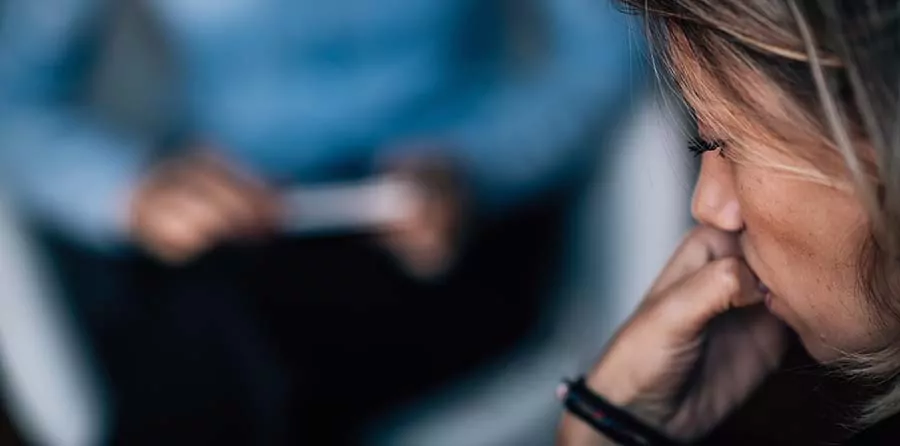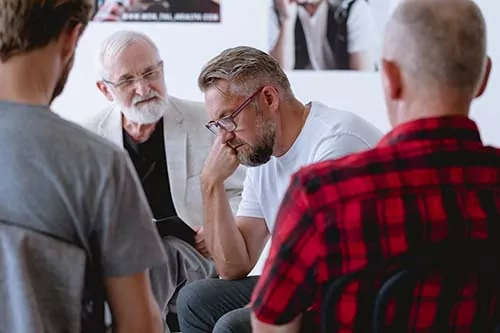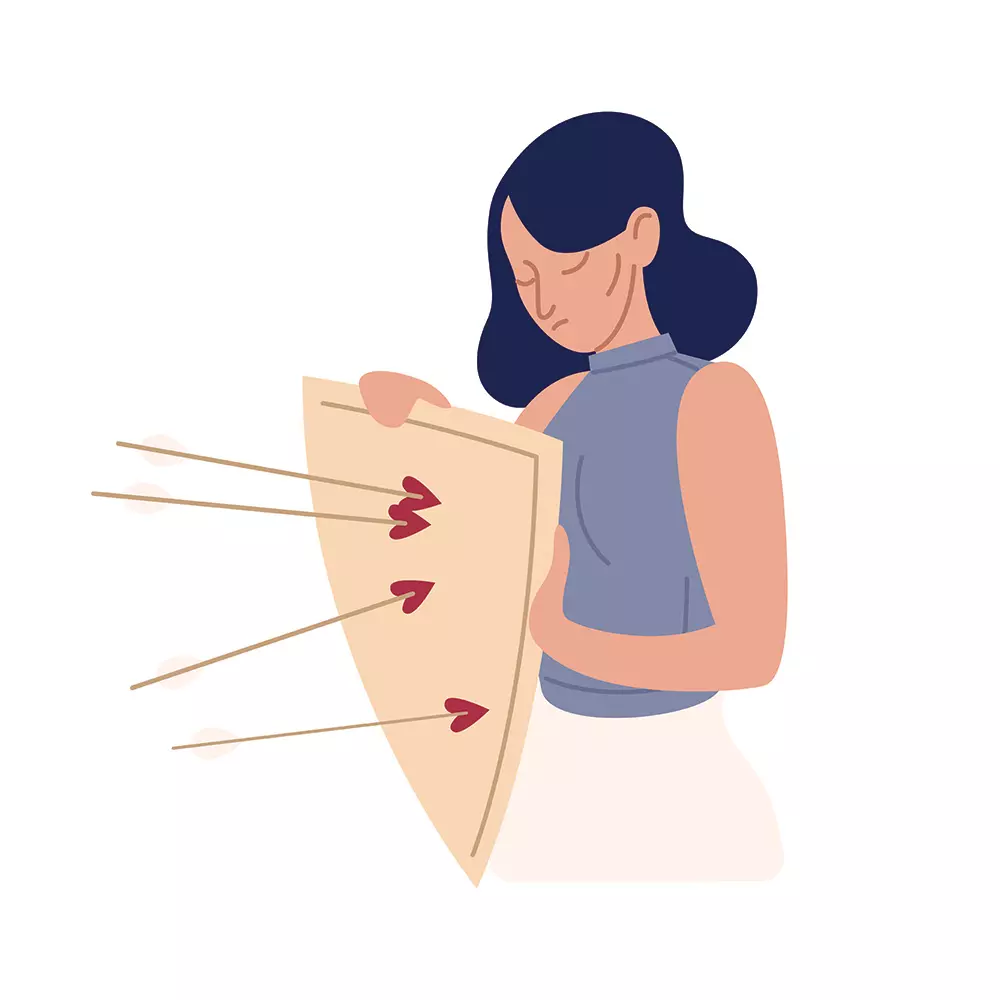When a loved one or family member is affected by trauma, it can feel overwhelming to step in and help, especially if you’re worried about making their mental health struggles worse. While it might seem safer to keep your distance, reaching out to build a strong support system is crucial for both you and your loved one. A support network helps those in a vulnerable position feel loved and understood, especially after they have endured a traumatic experience. Research has shown that social support significantly mediated the development of mental health conditions like PTSD in trauma survivors when compared to those who felt little to no social support. The first step to helping a loved one with trauma is educating yourself about ways to lend a hand without exacerbating the issue. Keep reading to learn about trauma and ways you can help!
“Trauma” occurs when an overwhelming event, like a natural disaster, accident, or personal loss, creates intense traumatic stress that exceeds our ability to cope. While many people associate trauma with Posttraumatic Stress Disorder (PTSD), it’s important to understand that not all trauma leads to PTSD. In fact, research shows that only about one-third of trauma survivors develop PTSD, though many may still benefit from professional help in processing their experiences.
Trauma comes in several forms, each affecting people differently:
The signs of PTSD and trauma can overlap, but they’re not the same thing. While trauma is a normal response to an abnormal situation, PTSD involves specific symptoms that persist for more than a month and significantly impact daily life.Research has attested to trauma being more prevalent in some communities than others. For example, adverse childhood experiences, or ACEs, which are often precursors to trauma, are more likely to be experienced by marginalized communities than privileged ones.
@eleanor_health Here are some to recognize symptoms of trauma ?? #EleanorHealthJourney #healingtogether #MentalHealthMatters ♬ original sound – Eleanor Health
Just as trauma affects many people, it also presents itself differently. Common warning signs and symptoms of trauma may include:
Some people may cope with their trauma by ignoring it completely and being in denial, while others may ruminate on the event and experience flashbacks. It all depends on the individual and their circumstances.
Now that you know the trauma basics, you can create a plan for helping your loved one who is experiencing trauma.
Be patient with your loved one and offer a listening ear without interfering with comments or anecdotes to fill silences—talking about difficult events takes time! “Active listening” effectively lets the person know you are staying present in the conversation and taking in what they say. It involves having open body language, making eye contact, nodding, and repeating what they are expressing so they know they are being understood. Using these active listening tactics will create a trusting and comfortable environment for your loved ones to share how they are feeling.

A “trauma trigger” is anything that reminds someone of a traumatic event. It can send them into a spiral of anxiety and fear, like what they may have felt during their traumatic experience. Even the most minor things can be significant triggers for some people and cause them to spiral in their trauma. To reduce this risk, pay attention to what you are saying or doing, and weigh in on if it may be triggering to your loved one. For example, if your loved one experienced a traumatic event regarding a shooting, it may not be appropriate to watch a war movie with them. Some triggers, however, are less clear. For example, if a person experiences a traumatic event outside in the rain, simply going out during a rainstorm may be triggering. If you are unsure, the best way to ensure you are mindful of their triggers is to ask them! You may find out that something you thought was triggering to them is not triggering at all or that something you least expected is triggering for them.
It is human nature to want to fix the problems of the ones we love and care about so that they don’t have to endure any suffering or negativity. However, we must remember that the person experiencing trauma knows what is best for them before anyone else. Instead of giving them unsolicited advice or signing up for group therapy without consulting them first, take a step back. Your support’s purpose is simply to be there for them in this time of need and to help in practical ways. You’ll only know what works for your loved ones if you ask them. A simple “Is there anything I can do to help you?” goes a long way. Keep in mind that they may not necessarily need much from you. Your loved one may just need a listening ear or some help with household chores to help them feel less anxious.
If your loved one is open to you finding some resources for them, taking this off their plate will be extremely helpful! Many mental health professionals offer specialized trauma treatment, including Cognitive Behavioral Therapy, Exposure Therapy, and Group Therapy. Support groups can offer a safe space for individuals to connect with others who have had similar experiences. Family therapy or couples counseling might also be beneficial for addressing how trauma affects relationships and family dynamics. If they are interested in starting therapy sessions, you can save them some hassle by gathering the contact information of offices near them.
Supporting your loved one in developing effective coping mechanisms is crucial for their recovery and overall well-being. Stress management techniques, such as deep breathing exercises and emotional regulation practices, can help individuals handle overwhelming moments. Physical activity, such as regular exercise or walks in nature, can be particularly beneficial for managing trauma symptoms. Holistic practices like trauma-informed mindfulness and trauma-informed yoga can help them reconnect with their body and mind in a safe, controlled way.
Structure and predictability can help trauma survivors feel more secure. Help your loved one establish daily routines that incorporate self-care practices and stress-reducing activities. This might include regular meal times, consistent sleep schedules, and designated periods for relaxation or physical activity.
During this time, check in with yourself and gauge your feelings. Are you overwhelmed, anxious, or triggered? Then it may be time to step back and prioritize your own well-being.
Remember that you don’t have to handle this alone. Help your loved one create a comprehensive support system that might include mental health professionals, support groups, trusted friends, and family members. This network can provide different types of support and prevent any one person from becoming overwhelmed.
Eleanor Health is here to help you build your confidence and momentum towards the future you want. We provide treatment services for adults with alcohol, opioid, and other substance use disorders. We are currently located in Florida, Louisiana, Massachusetts, North Carolina, New Jersey, Ohio, Texas, and Washington.
 Therapy for Anxiety, Depression, Trauma: 3 Common Types
Therapy for Anxiety, Depression, Trauma: 3 Common Types
 How Alcoholism Affects PTSD
How Alcoholism Affects PTSD
 5 Ways To Deal With Trauma
5 Ways To Deal With Trauma